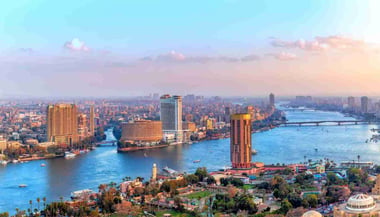Financial Action Task Force (FATF) is an independent inter-governmental body that helps develop and promote policies to protect the global financial system against money laundering, terrorist financing, and other facets of corruption. FATF was founded in 1989, comprises 39 member countries and its headquarters is placed in Paris, France.
Introduction to FATF
The rise in international trade and the global economy has resulted in an increase in financial crimes such as money laundering. Comprising over 39 countries, FATF has a ministerial mandate to establish international standards for combating these financial crimes. Over 180 jurisdictions have joined the FATF and committed at the ministerial level to implementing the Financial Crime Task Force Standards and having their anti‐money laundering (AML) systems assessed.
Financial Action Task Force (FATF) Definition
FATF stands for Financial Action Task Force. It was established in July 1989 by a Group of Seven (G-7) Summit in Paris, initially to examine and develop measures to combat money laundering and the threat it posed to the world financial system. At that time, the main responsibilities of the Financial Action Task Force (FATF) were to analyze and determine what the most common tactics were for money laundering, to reflect on what was already being done in order to tackle financial crime and make goals for what could be accomplished for the future.
After completing their research, FATF proceeded to generate 40 Financial Action Task Force Recommendations that were meant to guide its members through the processes of regulating the financial sector and curbing corruption. The FATF Standards, which comprise the Financial Action Task Force Recommendations themselves and their interpretive notes, together with the applicable definitions in the glossary of the regulations ensure a coordinated global prevention towards organized crime, corruption, and terrorism. It helps the authorities to go after the money made by criminals that comes from dealing with illegal drugs, human trafficking, and other crimes. Along with this idea, the FATF also works to stop funding for weapons of mass destruction.
They are aiming to strengthen FATF Standards to address new risks, such as the regulation of virtual assets, which have spread as cryptocurrencies gain popularity. FATF monitors every country to ensure that the FATF Standards are implemented fully and effectively and holds the countries accountable which do not comply.
How does FATF work?
Financial Action Task Force (FATF) works in the following ways:
- It sets International Recommendations to combat money laundering and terrorist financing.
- It assesses and monitors compliance with the FATF Recommendations.
- It conducts typologies, and studies of money laundering and terrorist financing methods, trends, and techniques.
- It responds to new and emerging threats, such as proliferation financing.
Financial Action Task Force on Money Laundering
Money laundering is a century-long crime, which continues to pose a significant threat to governments, financial institutions, and businesses even today. Thus, credit unions, financial institutions, banks, and corporations are required to set in place an Anti-Money Laundering Compliance Program. Another way to put an emphasis on regulatory monitoring, reporting, and compliance is to benefit the finance industry, businesses can even choose RegTech. RegTech’s objective is to enhance transparency as well as consistency and to standardize regulatory processes. Whereas, an AML Compliance Programme can help businesses keep a track of transactions and flag any illegal financial activities to the concerned authorities.
The FATF has prepared a Guidance and Best Practices, which is a comprehensive set of guidelines and best practices to assist jurisdictions in their implementation of the Financial Action Task Force Recommendations. It is to provide support to countries and their financial institutions in designing Anti-Money Laundering(AML) measures that meet the national goal of financial inclusion.
Applying an overly cautious approach to AML safeguards may have the unintended consequence of excluding legitimate businesses and consumers from the financial system.
The Financial Action Task Force’s Guidance paper focuses on ensuring that AML controls do not inhibit access to financially excluded and underserved groups. This may include low-income rural sectors and undocumented groups. The paper extensively explores the initiatives to address financial inclusion taken in developing countries, since that is where the challenge is the greatest.
The Guidance paper also reviews the different steps of the AML process, be it Customer Due Diligence(CDD), record-keeping requirements, reporting of suspicious transactions, use of agents, and internal controls. For each of these processes, it presents how the Financial Action Task Force (FATF) Standards can be read and interpreted to support financial inclusion.
FATF’s Recommendations
The Financial Action Task Force Recommendations are internationally endorsed global standards for implementing effective AML measures. They help to increase the transparency of the financial system, making it easier to detect criminal activity and give countries the capacity to successfully take action against money laundering and terrorist financiers.
In order to successfully implement the FATF Recommendations, every country must:
- Criminalize money laundering and terrorist financing by properly training law enforcement and prosecutorial authorities, and equip them with sufficient powers and resources.
- They should deprive criminals of their criminal proceeds and resources needed to finance their illicit activities by implementing effective mechanisms to freeze, seize, and confiscate criminal assets.
- Countries should make sure that the required range of people and entities in both financial and non-financial sectors implement the AML preventative measures, such as:
Customer due diligence: This helps prevent criminals from operating anonymously or under false identities. This happens by accurately identifying customers and knowing enough about their businesses to be able to differentiate between legitimate and illegal activity.
Record keeping: To keep accurate customer identification and transaction records that can be promptly accessed by the authorities and enable customer transactions to be traced.
Suspicious transaction reporting: To monitor customer relationships and promptly report any suspicious transactions to the financial intelligence unit for analysis and possible dissemination to the law enforcement authorities.
- Implement supervision mechanisms, including powers to sanction financial institutions and other businesses with AML requirements.
- Prevent legal people and arrangements from being abused by criminals. This is possible when the appropriate authorities have timely access to the current information concerning the ownership and control of legal enforcements and arrangements.
- Implement mechanisms for effective cooperation with countries in a timely manner when investigating and prosecuting money laundering and terrorist financing. This should also take place amongst domestic authorities (including law enforcement, prosecutorial and supervisory authorities, the financial intelligence unit, and policymakers).
FATF and Terrorist Financing
During the early 2000s, and particularly after the 9/11 terrorist attacks, World Governments grew cautious of the funding of terrorism, as well as other types of financial crime. These growing concerns caused the Financial Action Task Force to alter its mission and update its Financial Action Task Force Recommendations. A complete revision of the Guidance and Standards was made. With regard to terrorist financing, the Financial Action Task Force (FATF) compiled extensive research on how the terrorists got their funding, where the money came from, and what tactics were used to avoid detection. The FATF then found different ways to prevent these methods and prevent the terrorist organizations from getting more money. A recently released document provides detailed information on wire transfers, weapons of mass destruction, and other forms of corruption that can allow terrorists to gain financing. This document is available on their official website.
FATF’s Member Nations
According to the official website, there are 39 member nations of the Financial Action Task Force (FATF), representing most of the financial centres around the world. These nations are:
Argentina, Australia, Austria, Belgium, Brazil, Canada, China, Denmark, European Commission, Finland, France, Germany, Greece, Gulf Cooperation Council, Hong Kong, China, Iceland, India, Ireland, Israel, Italy, Japan, South Korea, Luxembourg, Malaysia, Mexico, Netherlands, New Zealand, Norway, Portugal, Russian Federation, Saudi Arabia, Singapore, South Africa, Spain, Sweden, Switzerland, Turkey, United Kingdom, United States.
There is currently only one FATF observer nation, which is Indonesia.
Anti-Financial Crime Compliance with Tookitaki?



